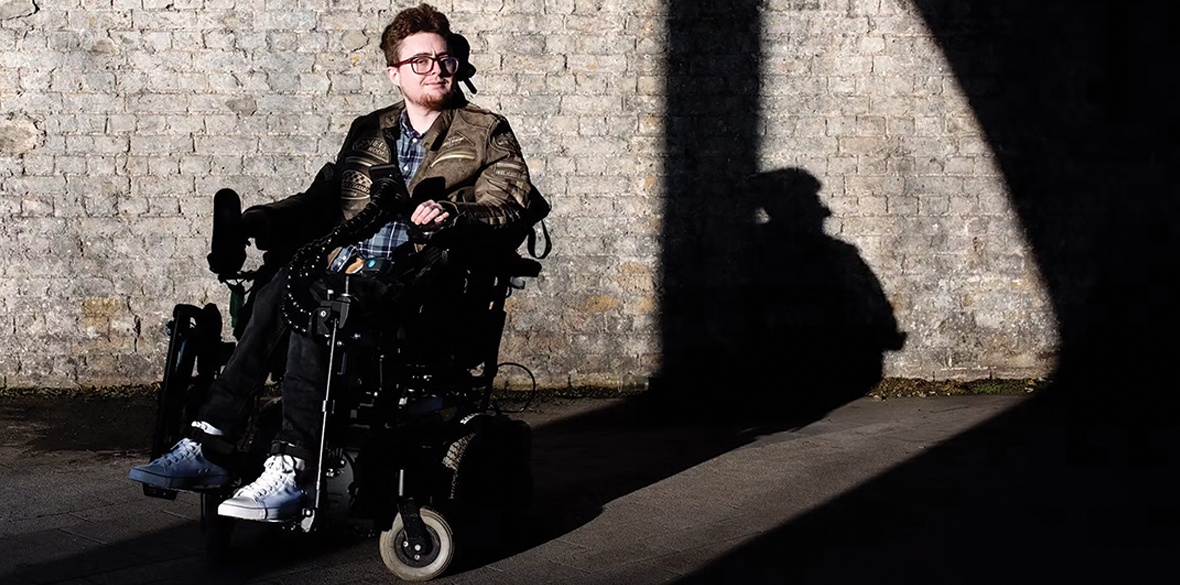This is the last article you can read this month
You can read more article this month
You can read more articles this month
Sorry your limit is up for this month
Reset on:
Please help support the Morning Star by subscribing here
AS THE King gets his treatment, he might not be aware that getting simple exploratory scans can, for some, be problematic. It should be a straightforward procedure for anyone, no matter whether they are able-bodied or not, but that is not what Dani Czernuszka-Watts found when she needed a scan at her local hospital.
Dani Czernuszka-Watts sustained a Spinal Cord Injury (SCI) following a reckless tackle by a rugby opponent and as a result is paralysed from the waist down. But as a determined young woman she has climbed Snowdon and completed the London Marathon not once, but twice. Currently she is part of the Great Britain ice hockey squad.
So, when she had to go to West Berkshire Hospital, Dani didn’t think she would face any problems. During her appointment, she was directed to get her scan at a mobile unit outside, with no warning from the staff that access may be an issue.
Dani was immediately aware of the stairs up to the unit, but quite rightly assumed there would be some form of disabled access so that she could get her scan.
She was told by the staff she needed to climb the stairs to have a scan. Resourceful as ever, Dani said she was unable to walk up the stairs, but could go up using her bum, but the staff refused. There was a lift, but the staff said it was to be used in “emergencies” only.
The staff told Dani she would need to be able to walk into the scanner for it to be undertaken and as she couldn’t do this, they had cancelled the scan.
Very distressed, Dani turned to social media, and posted: “How can this be happening in this day and age?”
Thinking about all her achievements past and present, she added: “How can I do all these amazing things and yet not go for a simple MRI scan?"
Since then, Berkshire Healthcare NHS Trust have apologised for any inconvenience and disruption caused saying: “Teams at West Berkshire Community Hospital will typically consult patients in advance to let them know details of appointments and understand any accessibility requirements but failed to do so in this case. We will be taking learnings from this incident to make sure this doesn’t happen again in the future.”
Dani was aware many more people with mobility problems, not just those with SCI, were encountering similar difficulties. So, she wanted to raise awareness of these issues that disabled people face when trying to access health care. To do this, Dani has become a member of a taskforce set up by the Spinal Injuries Association (SIA) who are campaigning for change.
A spokesperson for SIA said: “Dani’s experience is not an isolated incident.
“It is 75 years since the NHS was established, 28 years since the Disability Discrimination Act, which then got replaced by the Equality Act of 2010, which pulled together all other protected characteristics and yet, we still hear these stories on a day-to-day basis, whether it is to do with disability, gender, race, religion, or anything else.
“The fact that nothing substantive has been done, when many of the changes will not even cost a lot of money, if any, is beyond frustrating.”
In particular, the SIA hears about problems women face: “Some disabled women, with spinal cord injuries and other similar conditions who are in wheelchairs, are not able to access diagnostic tests or other gynaecological advice, across the country.
“It’s a postcode lottery, depending on where you live or which healthcare facility you are using, and many are left with no option but to not attend vital mammogram or cervical smear test appointments.
“Some healthcare staff are even telling those with substantial needs not to attend due to problems with access. It is truly unacceptable such disparities and health inequalities even exist.”
SIA are campaigning to bring change and equity in women’s healthcare, and as a first step are putting together a task force convening service users, providers and senior decision-makers, in Parliament, the NHS and other relevant organisations.
Mobility issues shouldn’t mean you can’t access the NHS procedures you require, nor should it mean you have to fight for them.
Although the account given here involves someone with spinal cord injuries, it could affect anyone who has trouble walking up steps or being able to walk into a scanning room and, as Dani said, this shouldn’t happen in this day or age.
RF Hunt is a freelance journalist and author.
To find out more about the campaign here: https://spinal.co.uk









